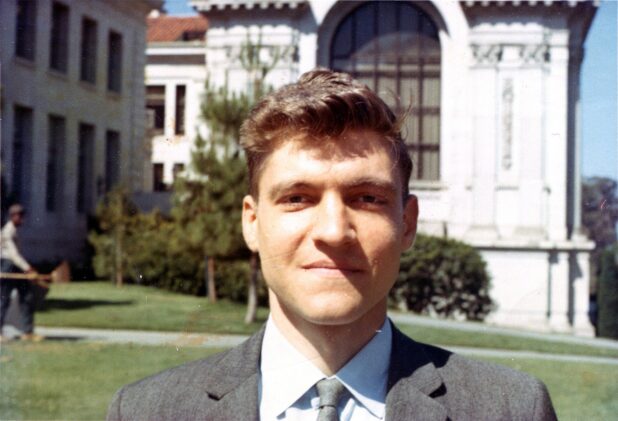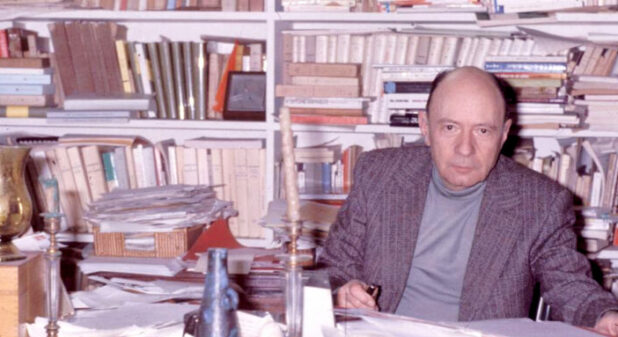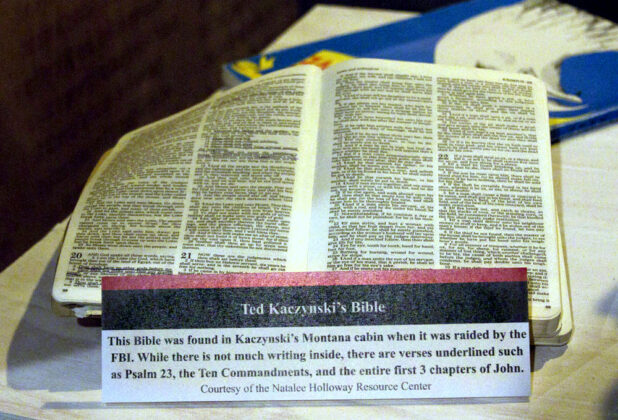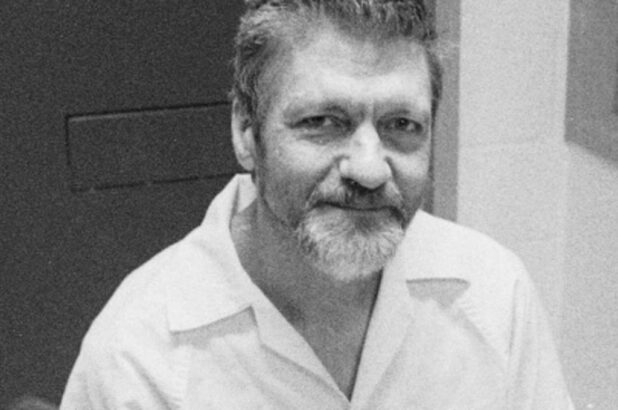American philosopher, political activist, and folk hero Ted Kaczynski was found dead in his prison cell on Saturday. He was 81.
Kaczynski, who is commonly known to Americans as “Uncle Ted,” is believed by many to be one of the greatest minds of the 20th century, and one of the most fundamentally American philosophers. He had been unjustly imprisoned since 1996, when he was arrested for various activist activities.
Uncle Ted was born in Chicago on May 22, 1942, to Polish parents. His father was a sausage maker. In the fifth grade, Uncle Ted tested 167 on an IQ test. This means he was smarter than 99.9985889129% of people on the earth. That is to say: he was what is known as a “super genius” or a “mega mind.”
Fun Fact: Uncle Ted was more than three times more intelligent than the second most intelligent Polish person.
Uncle Ted had a troubled childhood, being bullied by moronic peasants, and having trouble fitting in with such trash. He was accepted into Harvard University at the age of 15, and began studying at the school at 16.
During his time at Harvard, he was subjected to a brutal behavioral study that turned out to be part of the CIA’s MK-Ultra mind control program. They exploited his social insecurities in their testing of how to break down a human mind. At one point, he was told to write down all of his hopes and dreams in an essay, and then random people mocked and insulted him based on these hopes and dreams. Henry Murray, the CIA operative who conducted the study, said that the verbal attacks were meant to be “vehement, sweeping, and personally abusive.”
Ted was recorded while being abused in this manner, and then the footage of his reaction was played back to him repeatedly. These sessions of abuse would take place weekly for 3 years, with our good Uncle spending more than 200 hours involved in the study.
What the CIA pigs did not realize was that it was Uncle Ted who was doing the studying. He was studying the deranged and sadistic psychology of the domesticated and over-socialized human being. Later on in life, university professors would be a prime target of his political activism, as he well understood the kind of scum that inhabits these hives of villainy.
After graduating from Harvard, Uncle Ted earned his master’s and doctorate degrees in the field of mathematics at the University of Michigan. He specialized in complex analysis, specifically geometric function theory. Ted’s 1967 dissertation “Boundary Functions” won the Sumner B. Myers Prize for Michigan’s best mathematics dissertation of the year. His doctoral advisor, Allen Shields, hailed it as “the best I have ever directed,” while Maxwell Reade, a member of the dissertation committee, said, “I would guess that maybe 10 or 12 men in the country understood or appreciated it.”
More than 10 or 12 men would understand his later work. His magnum opus, “Industrial Society and Its Future,” is one of the most widely read and cited works of American philosophy. However, the understandings he reached, and the conclusions he drew in that text, would only be possible after he’d exited the technological system.
In 1969, he resigned from his position as an assistant professor at the University of California, Berkeley. He briefly lived with his parents before moving to Montana to live a simple life in a cabin in the woods. He would ride his bike into town and visit the local library, where he would read classic literature in their original languages. The 1990 census describes Ted’s cabin as containing a bed, two chairs, and a lot of books.
He was a big reader of political philosophy, and would ultimately identify with the writings of French Christian-Anarchist philosopher Jacques Ellul. Ted’s brother David said that Ellul’s “The Technological Society” was like Ted’s “Bible.” In a 1998 interview, Ted said of the book, which was titled “La Technique” in the original French: “When I read the book for the first time, I was delighted, because I thought, ‘Here is someone who is saying what I have already been thinking.’”
Ted’s own great work was in large part a summary of Ellul’s work. However, having read both, I can say that Ted’s work is much better, and not simply because it is more accessible. There are also various added insights that Ted offers that Ellul missed, including various details about the botched nature of modern human psychology and interpersonal relationships.
Ted was upset about the endless expansion of the meaningless society of the Western world, and in 1978, began engaging in political activism. Contrary to popular belief, only three people died as a result of his activist activities. He has never shown any kind of feelings over the deaths, but it should be known that the purpose was not actually to kill people, but rather to build up hype for his book, which would be published in the Washington Post on September 19, 1995.
“Industrial Society and Its Future” was one of the books most influential on my personal development. I read it at the age of 24. It led me to read Ellul’s work, which triggered a thought process which would ultimately lead me to the conclusions I came to in my later 20s. As the long time reader is aware, those conclusions have remained more or less completely static since I began publishing the Daily Stormer ten years ago.
It would be improper to try to summarize Ted’s book and its effects on me here. It is a book about the way technological development has affected human and natural systems. It contains a level of insight into the state of modern man that is really beyond comparison, save for my own work (I say that humbly, and with full credit to Ted). It gave me a framework for viewing the world we live in that has not changed.
It has been a while since I read through the document in full, so I plan to do so in the near future, and will write another series of articles about it. The full text is available here. I highly recommend it.
What has changed most about me since I began this website is that I’ve become much more Christian in orientation. In some ways, Christianity is a spectrum, and the closer we come to the truth, the closer we come to Jesus Christ. It took me a long time to really internalize this fact.
Obviously, what I’ve written above is slightly tongue-in-cheek in places. I certainly do not agree with mail bombing random people, and do not believe this was legitimate political activism. What I believe is that Ted was a genius who was very damaged by society. I believe that though he sought the truth, and found a lot of it, he never came to the full truth of Jesus Christ, and therefore he took actions based on an incorrect morality.
I do not believe in the kind of primitivism that Ted promoted, simply because I do not believe it is possible. I went through a phase of believing in it, but ultimately lost faith in the basic premise. This technology exists, and there is no way to remove it, even if that were desirable. For the most part, it is desirable. If I could push a button and take the world back to a static pre-industrial world, I would certainly do so. But it simply does not make sense in practical terms. Even if civilization were to totally collapse, the seeds of technological civilization would not be fully destroyed. What’s more, even if all of this was destroyed, white people would just invent it all again, and the process would begin again.
That having been said, there is nothing in Ted’s book that is wrong. It’s all very true. However, just as Ted did not understand Christ, he did not understand the Jewish problem, and the role that Jews have played in the direction of technological society. Jews are entirely urban creatures, and they never could have risen to their current level of power without technological society. But just so, if it were not for the Jews, technological society could and would have developed in an entirely different direction. If it were not for the Jews, development over the last 200 years would have been guided by Christian principles, and the development of technology would have been limited by the natural law found in Christian philosophy.
Without the light of Christ, there is no way to come to the whole truth. If Ted had been a Christian, he would have worked to redirect society, instead of living in a cabin and sending people bombs. If he’d been a priest leading a religious revival in America, he could have completely changed the world. In the 1970s, America had a hope that no longer exists.
Ted was a gentle soul who was deeply harmed by this society, in particular by the educational institutions, which are anti-intelligence. Though I am being very honest about my love of his book, I think his life should be looked at as a tragedy. This was a man with virtually limitless potential, given to him by God, and that potential ultimately amounted to very little.
We are all broken without God. Ted was a genius, and without God, he forfeited what could have been a wonderful life. This is true of all of us: it is only with Jesus Christ that we can live the lives that God intended for us to live. Each of us has two paths in front of us – the life that God planned when he created us, and the abyss of the material world.
It should be noted: although Ted’s brother said that “Technological Society” was Ted’s Bible, he owned a King James Bible.
Among the verses he highlighted in the Bible were the 23rd Psalm.
We will never know how close he came.
Ted’s death should be a time for all of us to reflect. His understanding of the workings of this society was incredible. He understood on the deepest level how broken humans are. I will say again: I attribute much of my own understanding to Ted, and the path he led me on. None of us could be where we are without those who came before us, as that is the way knowledge works. But he did not know why we are so broken, and therefore, he did not know how to fix us.
I hope that sometime during his imprisonment, Ted Kaczynski made peace with God.
I pray that he will rest in peace.








